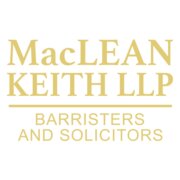Best Toxic Tort Lawyers in Regina
Share your needs with us, get contacted by law firms.
Free. Takes 2 min.
List of the best lawyers in Regina, Canada
About Toxic Tort Law in Regina, Canada
Toxic tort law refers to a specialized area of law dealing with cases where individuals have been exposed to dangerous substances or chemicals, resulting in health issues or environmental harm. In Regina, Canada, toxic tort cases often involve exposure to pollutants such as asbestos, pesticides, pharmaceutical drugs, and more. These cases can be complex as they require showing a causal link between the exposure and the harm suffered. The legal framework in Canada, including Regina, aims to protect individuals and the environment from the harmful effects of toxic substances.
Why You May Need a Lawyer
Individuals may seek legal assistance in toxic tort cases for various reasons. Common situations include workplace exposure to hazardous chemicals leading to health problems, exposure to contaminated air or water causing illnesses, and the negative effects of defective pharmaceuticals. A lawyer with expertise in toxic tort law can help navigate the legal complexities, assess the validity of a claim, gather necessary evidence, and represent the individual in court or settlement negotiations to ensure fair compensation.
Local Laws Overview
In Regina, toxic tort cases are governed by both federal and provincial laws. Key legislation includes the Canadian Environmental Protection Act (CEPA), which regulates the use and management of chemicals, and the Saskatchewan Environmental Management and Protection Act, which addresses environmental contamination issues. These laws mandate companies to follow strict guidelines in handling toxic substances. Furthermore, the Saskatchewan Workers’ Compensation Board provides support for workers exposed to toxins at their workplace. It’s crucial for claimants to understand how these laws apply to their situation and what legal recourses are available to them.
Frequently Asked Questions
What is a toxic tort case?
A toxic tort case is a legal claim involving injury or harm caused by exposure to a toxic substance. These can arise from various situations, such as industrial accidents, consumer product use, or environmental exposure.
How do I know if I have a toxic tort case in Regina?
If you’re experiencing health issues that you believe are linked to exposure to chemicals or toxins, it’s advisable to consult with a lawyer specializing in toxic tort law who can help assess the strength of your case.
What should I do if I think I’ve been exposed to toxic substances?
Seek immediate medical attention to document your health condition. Additionally, collect evidence of the exposure and consult a legal expert to discuss potential claims.
What kind of compensation can I expect from a toxic tort lawsuit?
Compensation may cover medical expenses, lost wages, pain and suffering, and potentially punitive damages depending on the circumstances of the exposure and the severity of harm.
How long do I have to file a toxic tort claim in Regina?
The statute of limitations for filing a toxic tort claim may vary, but typically it is within two years from the date you became aware, or should have become aware, of the harm. Consulting a lawyer promptly is crucial.
Can I handle a toxic tort case without a lawyer?
While it is possible to represent yourself, toxic tort cases are often complex and challenging, making professional legal advice beneficial in securing a favorable outcome.
Are there any defenses to a toxic tort claim?
Yes, common defenses may include arguing that the substance was not toxic, the exposure did not cause the plaintiff's injuries, or the statute of limitations has expired.
What role does expert testimony play in toxic tort cases?
Expert testimony is often crucial as it can establish the connection between the exposure and the harm experienced by providing scientific and technical evidence.
What are mass torts, and how do they relate to toxic torts?
A mass tort involves numerous plaintiffs against one or more defendant corporations, often in cases of widespread exposure to harmful substances, making it a common method of addressing toxic torts.
How can community organizations help in toxic tort cases?
Community organizations can provide support resources, public awareness, and advocacy which can be beneficial in collective legal actions or in raising attention to toxic exposure issues.
Additional Resources
The following resources can be helpful for anyone seeking more information or assistance with toxic tort cases:
- The Canadian Environmental Law Association (CELA)
- Saskatchewan Workers’ Compensation Board
- Environmental Protection Branch, Environment Canada
- Local legal clinics offering support in personal injury and environmental law
Next Steps
If you believe you require legal assistance in a toxic tort matter, the first step is to consult with a lawyer who specializes in this field. Gather all relevant documentation, such as medical records and evidence of exposure, to help build your case. Consider reaching out to local legal clinics or organizations for additional support and information. Remember to act promptly, as time limitations may affect your ability to file a claim.
Lawzana helps you find the best lawyers and law firms in Regina through a curated and pre-screened list of qualified legal professionals. Our platform offers rankings and detailed profiles of attorneys and law firms, allowing you to compare based on practice areas, including Toxic Tort, experience, and client feedback.
Each profile includes a description of the firm's areas of practice, client reviews, team members and partners, year of establishment, spoken languages, office locations, contact information, social media presence, and any published articles or resources. Most firms on our platform speak English and are experienced in both local and international legal matters.
Get a quote from top-rated law firms in Regina, Canada — quickly, securely, and without unnecessary hassle.
Disclaimer:
The information provided on this page is for general informational purposes only and does not constitute legal advice. While we strive to ensure the accuracy and relevance of the content, legal information may change over time, and interpretations of the law can vary. You should always consult with a qualified legal professional for advice specific to your situation.
We disclaim all liability for actions taken or not taken based on the content of this page. If you believe any information is incorrect or outdated, please contact us, and we will review and update it where appropriate.










